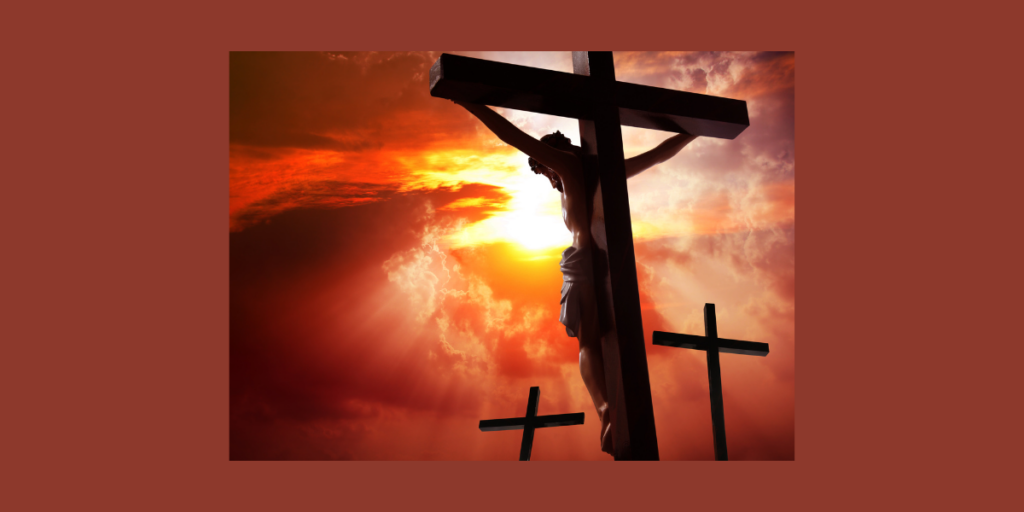
The Pro-Life Movement and the “Weakness” of Christ
While activist efforts are certainly important in the pro-life movement, just how much are we relying upon our own wisdom and strength when it comes to fighting these battles?
By: Braden Hock, Crisis Magazine, originally published January 22, 2024
This past November’s passage of Ohio’s Issue 1—that utterly satanic amendment to the state’s constitution which legalized abortion up to the moment of birth and made null and void any parental consent requirements for minors getting abortions (to give only two examples of the innumerable evils made possible by this amendment)—understandably left the pro-life movement reeling.
Plenty of capital was poured into the effort to defeat Issue 1; financial means and manpower were expended. Even so, we were out-messaged, out-advertised, and out-politicked to the tune of 2.2 million votes in favor of Issue 1—over 500,000 more than were cast against the issue.
This, and any other defeat of a pro-life initiative despite plentiful activism, should lead us to ask some important questions: While activist efforts are certainly important, just how much are we relying upon our own wisdom and strength when it comes to fighting these battles? And how much are we ignoring invisible realities to focus on visible ones?
With these questions in mind, we would do well to turn to St. Paul for two reasons. Firstly, he does not cease to remind us of those “invisible realities” I mention: that “we are not contending against flesh and blood, but against the principalities, against the powers, against the world rulers of this present darkness, against the spiritual hosts of wickedness in heavenly places” (Ephesians 6:12). Secondly, we should turn to St. Paul because of what he writes about in 1 Corinthians regarding the power of the “foolishness” and the “weakness” of Christ in the face of human wisdom and strength.
“For the word of the cross is folly to those who are perishing, but to us who are being saved it is the power of God” (1 Corinthians 1:8).
Looking at Christ upon the Cross, Paul sees how it appears to other men: like a complete failure. Yet he sees, through this visible reality, an invisible one: the total triumph of Christ, in that moment, over Satan’s entire kingdom.
As we (hopefully) learned from this past election, our opponents have all the trickery and resourcefulness of the devil on their side, and we simply cannot match them in that. They are Goliath—so we must be David. David, totally outmatched in size and resources. David, who trusts in the Lord. David, who prefigures Christ. David, who is ultimately victorious.
Around the time of the election, I joined a group primarily made up of young adults that meet regularly every Wednesday to pray fifteen decades of the Rosary outside of an abortion clinic.
Often, it is hard for our little human minds, steeped in the merely visible, looking at this particular David before Goliath, to see beyond appearances and imagine how such a seemingly minor effort can be anywhere near as effective as, say, lobbying politicians, going door-to-door, or holding pro-life conferences. Yet it is—and sometimes it may very well be even more effective than these other things because it musters in a specific way the strength that our opponents do not have: the strength of Christ, and Him crucified.
I continue to learn just how powerful prayer can be, and I hope you, reader, do as well. I do not mean that all each of us should be doing is praying all the time in the fight for life in our cities, states, and country. But I do mean that, in addition to carrying out good, healthy, activist efforts, we should redouble our focus on those things that seem “weak” to us, humanly speaking; those things that tend to look like little David before Goliath. Perhaps this is prayer, or fasting. Maybe it is growing in virtue in general (a process all about repeated “weak” efforts), or making our families and local communities the priority, or donating to good religious orders, or a multitude of other things that do not usually bear in themselves an appearance of “power,” at least not in the same way something like high-level politics does.
The Christian message is, in a sense, fundamentally weak, as St. Paul makes plain. It is one that from the outset rejects the “cleverness of the clever” (1 Corinthians 1:19) and baffles human strength. For “God chose what is foolish in the world to shame the wise, God chose what is weak in the world to shame the strong” (1 Corinthians 1:27)—Christ being foremost among those who appear weak and foolish.
Embracing what seems weak and foolish in the present battle for the sanctity of life is a sort of death, a martyrdom. We fallen humans want so badly to see ourselves as the reason for change and for our faith “to rest in the wisdom of men” instead of the “power of God” (1 Corinthians 2:5). But die to this tendency we must. And when we do, God can and will work wonders through us—even though, to keep us humble, we might not know about them.
May we see past visible realities and be drawn to a greater appreciation for invisible ones, as the Christmas Preface in the Traditional Mass exhorts us. And may we, with God’s grace, be able to step beyond mere human strength and wisdom, embracing that “martyrdom”—and all the various kinds of martyrdom Our Lord may ask of us.
For after all: martyrdom, the weakest and most foolish thing in the eyes of the world, has always been—and always will be—the seed of the flourishing Church.
Braden Hock is a young Catholic from the Cincinnati, Ohio area. He has been involved with the pro-life movement and enjoys writing, literature and music.
